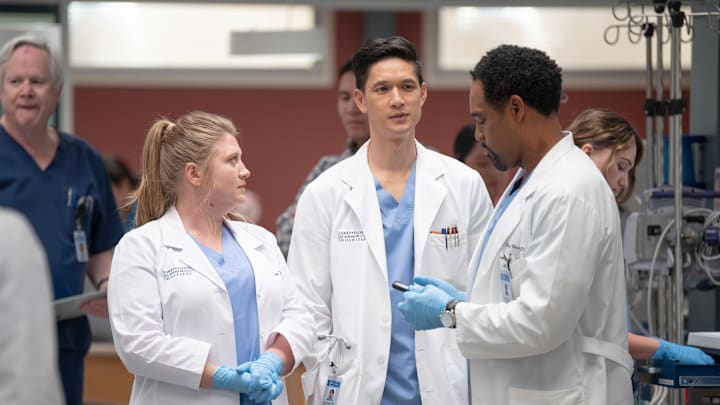Since its premiere in early 2025, HBO Max's The Pitt has been praised, particularly by real-life medical professionals, for its sometimes uncomfortably accurate depictions of what it's really like to work in a hospital emergency room.
When you watch even just a few minutes of the series, you're reminded that popular dramas like Grey's Anatomy and Chicago Med are highly fictionalized and, as the genre implies, dramatized stories that take place in fake hospitals. The Pitt is also scripted and filmed on a set, but unlike Grey's or the Chicago franchise, it's less procedural and more realistic. Its heart is in its realism. It stands out because there aren't many shows like it.
I sometimes worry that the success of The Pitt will change the way audiences interact with long-running medical dramas like Grey's. The latter, and the many shows similar to it in concept and even style, has always been criticized for its over-exaggerated storylines, particularly its medical cases and the way they're treated. Even more so in later seasons, if you watch an entire season of Grey's, you'll emerge believing walking into any hopsital with a mysterious ailment will pair you with a team of surgeons who will go to the ends of the Earth -- some even illegally -- to treat you.
Logically, most of us know that this isn't how the American health care system really works. Many ER visits result in being dismissed without even pain medication, only casual suggestions to try scheduling an appointment with our PCPs. This is one of the reasons we collectively love medical dramas so much. They're a grand and welcome escape into a world where medical professionals actually can, and will sometimes do anything to try to, help us feel better.
It's fun to chuckle at the blatant inaccuracies of shows like Grey's -- even the fans do it. A hospital's entire team of surgeons dropping everything to solve Richard Weber's mystery illness -- one that appears to be neurological and not in any nature surgical at first -- is one of those more recent "do these writers understand what surgeons do" moments. And it's not even the biggest one in the history of the show.
But medical dramas are not designed to function around logic and accuracy. Working in a hospital, even as a surgeon, is usually quite uneventful. Grey Sloan Memorial receives once-in-a-lifetime cases, endless mystery illnesses, and disasters beyond what should be statistically normal for Seattle because its core purpose is to entertain us. Many of the episodes are written based on real medical cases, and real doctors do consult on how certain conditions and procedures are portrayed. Sometimes the show highlights real-world issues that do, as a result of said spotlight, educate those willing to listen.
The primary function of most of these shows, however, remains. Medical dramas are dramatic television built to draw us in and keep us coming back. It's nice when the show's plotlines and medical cases line up to both tell a good story and accurately portray something medical, but it's not going to happen every time. And that's okay. That is, arguably, the point. If the science doesn't fit the story, the science will always come second for the sake of the story. It's been this way forever, and it will continue -- and there's nothing wrong with that.
It's fascinating to watch shows like The Pitt and have a version of a medical show that's possibly as close to the real thing as we'll ever get. But it's unique for a reason, and not every show featuring actors portraying medical professionals is going to fit that mold. We're always going to point out when certain shows get things wrong -- it's in our nature. But let us never forget that entertainment sometimes isn't informative to the point of accuracy, and we can't demand that it change. If medical dramas became too realistic, most of us would probably stop watching.
